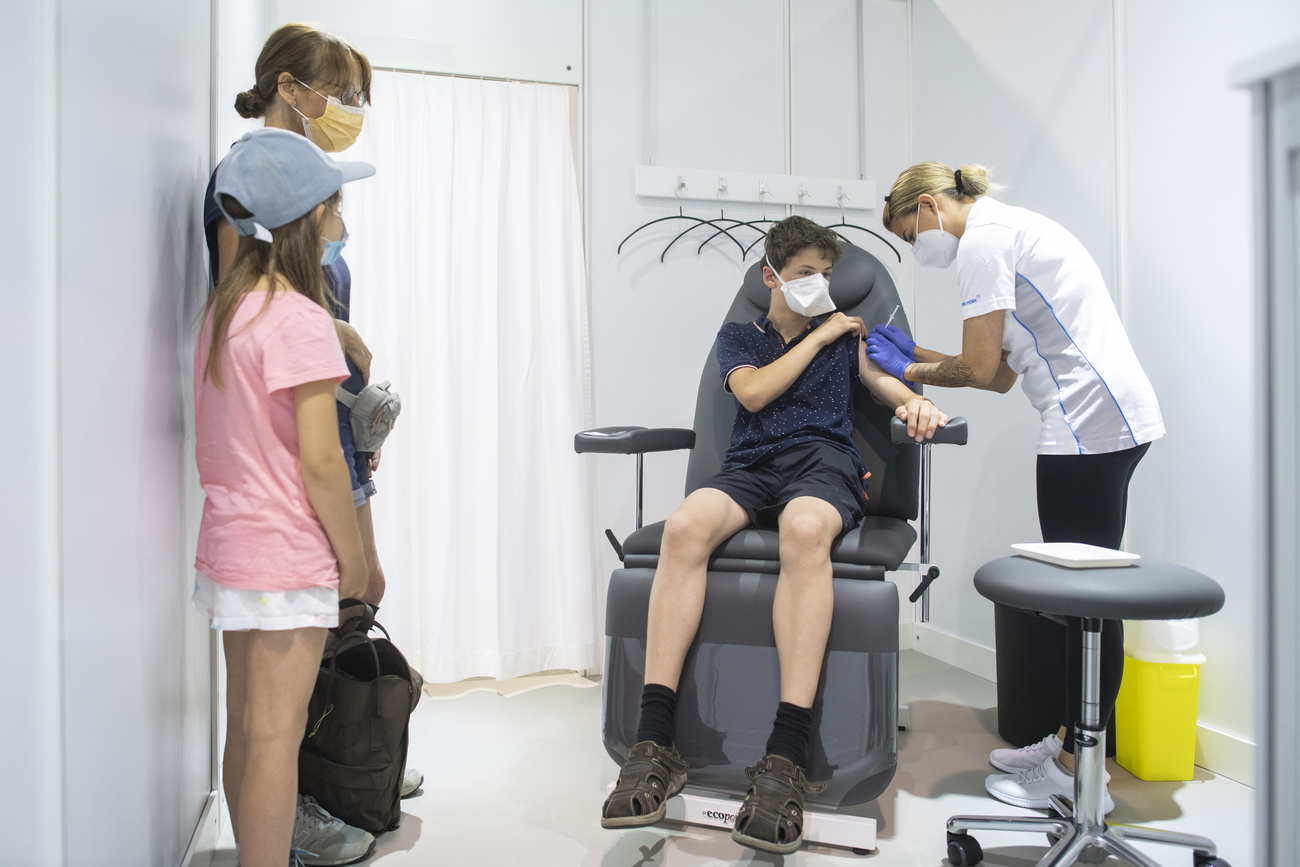
Swiss Covid-19 restrictions to stay as infections rise

The Swiss government says it is too soon to lift remaining pandemic restrictions, such as the compulsory wearing of masks in public spaces.
At the same time, the government cranked up pressure on people who refuse to get vaccinated. It wants to stop paying for tests for unvaccinated people who need one to attend large scale events, such as football matches.
“People who are not vaccinated or who have not recovered from Covid-19 wishing to attend an event where a Covid certificate is required will from 1 October have to pay for the test themselves or get vaccinated in the meantime,” read a press releaseExternal link on Wednesday.
The number of daily infections has breached the 2,000 mark, with 2,120 new cases being recorded on Wednesday. Just under half of the Swiss population is fully vaccinated, but the rate of jabs has stagnated since July 11.
The governing Federal Council has urged more people to take the vaccine. “Given that everyone living in Switzerland will at some point come into contact with Covid-19, the Federal Council believes that an increase in infections, hospitalisations and deaths is inevitable,” it said. “A return to normality requires a massive increase in the number of people getting vaccinated.”
Swiss Health Minister Alain Berset says the country has now moved into a period of “normalisation”. But restrictions will remain in place until at least the beginning of September when the government will review the situation again.
The government will continue to fund mass testing in schools, companies and healthcare facilities, but wants to stop short of paying for so-called “convenience tests” for people to attend events.
This would not apply for under-12s or people who are unable to be vaccinated. A final decision will be given on August 25 following a consultation process.
The government says its future strategy will be focused on preventing hospitals from being overwhelmed rather than protecting people who refuse vaccinations.

More
Coronavirus: the situation in Switzerland

In compliance with the JTI standards
More: SWI swissinfo.ch certified by the Journalism Trust Initiative

























You can find an overview of ongoing debates with our journalists here . Please join us!
If you want to start a conversation about a topic raised in this article or want to report factual errors, email us at english@swissinfo.ch.